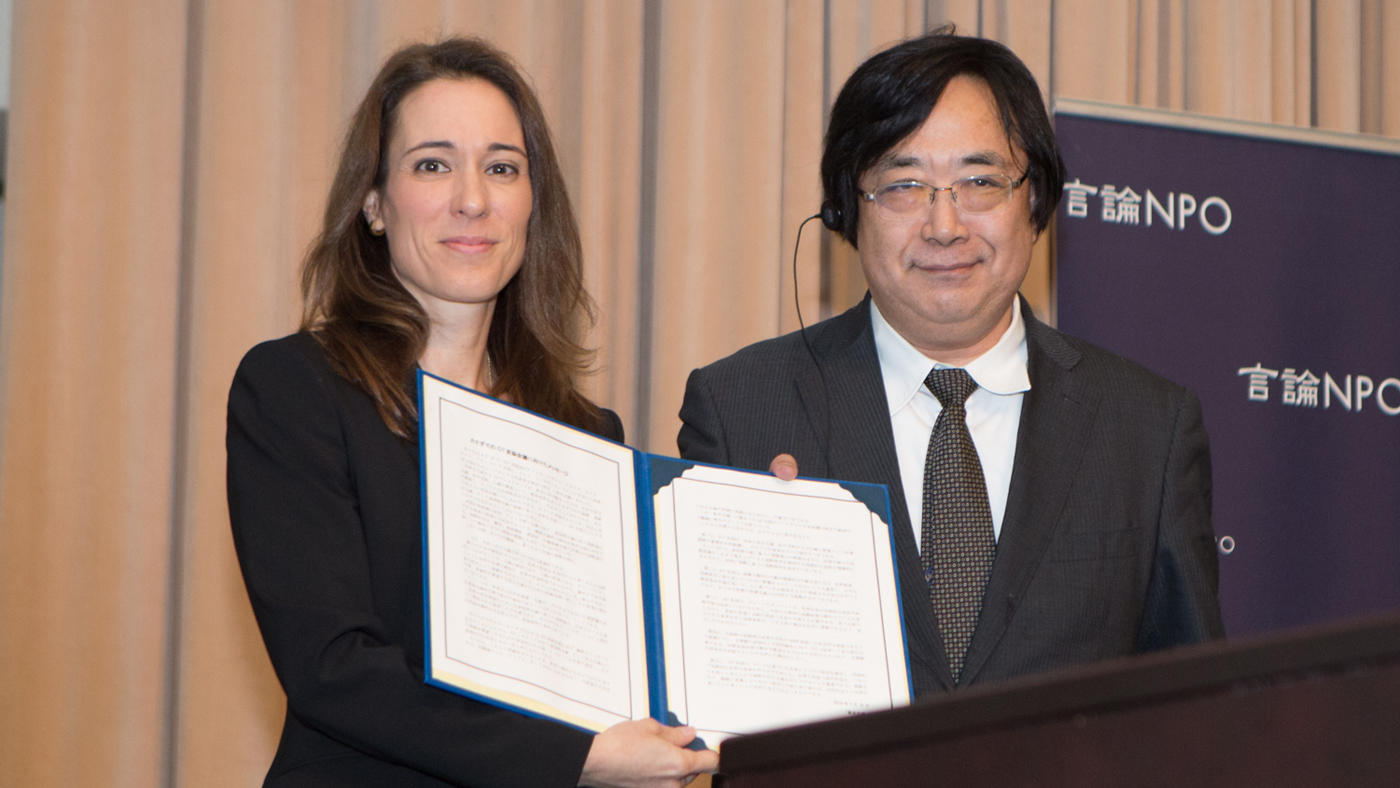Representatives of leading think tanks from the countries that comprise the Group of Seven - the United States, Canada, France, Germany, Italy, Japan and the United Kingdom - as well as India, Singapore and Brazil, gathered in Tokyo on March 10 for the Tokyo Conference.
The world's 10 representative think tanks were prompted to meet in Tokyo because the common values and norms that have underpinned the international order since the end of World War II, such as individual freedom and democracy, the rule of law, and respect for human rights, are being threatened, and the liberal world order is growing increasingly unstable, making it difficult to predict where the world is headed. At this critical juncture, we consider it imperative for the think tanks in the 10 states to join forces to build a world based on the values of individual freedom, democracy and multilateralism.
The current U.S. administration advocates American unilateralism, and that is casting a dark shadow over the future of international cooperation based on multilateralism and free trade. There are also nations that are increasingly showing authoritarian tendencies. The world must address pressing global issues, such as the surge of refugees, global warming, the spread of infectious diseases, and the proliferation of weapons of mass destruction, all of which cannot be solved without international cooperation.
In the last two days, we had far-reaching discussions and shared common perceptions on many issues.
One is the contemporary significance of individual freedom and democracy.
To ensure that global benefits reach all the peoples in each country of the world inclusively, while protecting individual freedoms and rights, is a mission of humankind and an asset for humankind. The rapid progress of globalization and technology is a mutual benefit for all, but such advancement has also created problems of job instability, and an increased gap between rich and poor. Faced with such an environment, one must reflect on the contemporary significance of individual freedom and equality, as well as of democracy, which respects diversity, and work to promote such values.
Another point is that the world should not be allowed to return to a past of unilateralism and zero-sum, mutually destructive mercantilism. International cooperation based on multilateralism, and a free and open economy based on rules is what is necessary for the mutual development of the world. Governments must make efforts to strike a balance between globalization and national prerogatives within this framework.
The reason we have decided to send a message of the chair of the Tokyo Conference to the G-7 Summit to be held in Canada in June this year is because we believe the G-7 should deliver a strong and effective message to the world in order to respect and protect values such as freedom, multilateralism and democracy, and that it should serve as the engine to drive the task of realizing such values and norms.
Of course, expecting governments alone to support such values and norms is not sufficient. Intellectuals, the media and ordinary people must work together to seriously confront the difficulties that freedom and democracy are facing, and to act on them. All the think tanks from the 10 major countries that gathered in Tokyo have agreed to engage in the discussions according to the statute of the respective institutions.
From such a standpoint, the following five points were highlighted.
First, the G-7 member states should reconfirm the significance of the universal values of individual freedom, democracy, the rule of law and respect for human rights, and strengthen their solidarity based on such values. Furthermore, the members should preserve the framework of international cooperation based on multilateralism, and proactively sustain the roles of the United Nations and various international organizations to maintain the long-established international order while at the same time, seeking to maintain such order themselves.
Second, the G-7 states should emphasize that protectionist action invites retaliation and may cause irreparable damage to the world economy and international order. They should make efforts to further develop fair competition, and a predictable and mutually beneficial trade relationship, as well as demonstrate their resolve to counter all forms of protectionism.
Third, the G-7 states should keep pace with each other on growth promotion and wealth distribution, while noting the financial policies of the major nations, in order for globalization to ensure the sustainable, inclusive growth of the entire world. The states should make efforts to have the technological innovation, which accompanies major transformation, transformation, contribute to the social well-being of the world as much as possible..
Fourth, the G-7 states should, on the understanding that North Korea's nuclear development is a decisive threat to world peace and the nuclear non-proliferation regime, engage in joint efforts for the denuclearization of North Korea and achieve this objective by peaceful means. We welcome the proposed U.S.-North Korea summit only for this particular objective, and we are definitely against any moves to recognize North Korea's possession of nuclear arms.
Fifth, the G-7 states should maintain the world's liberal order based on such rules, and in order to create sustainable and inclusive world growth, it is important to build a resilient democracy that can strike a balance between national prerogative and the shared interests of the global community. The ceaseless efforts of governments to observe the norms and sincerely address the challenges should be widely supported by many people through close dialogue with a civil society.
The Tokyo Conference

Post a comment